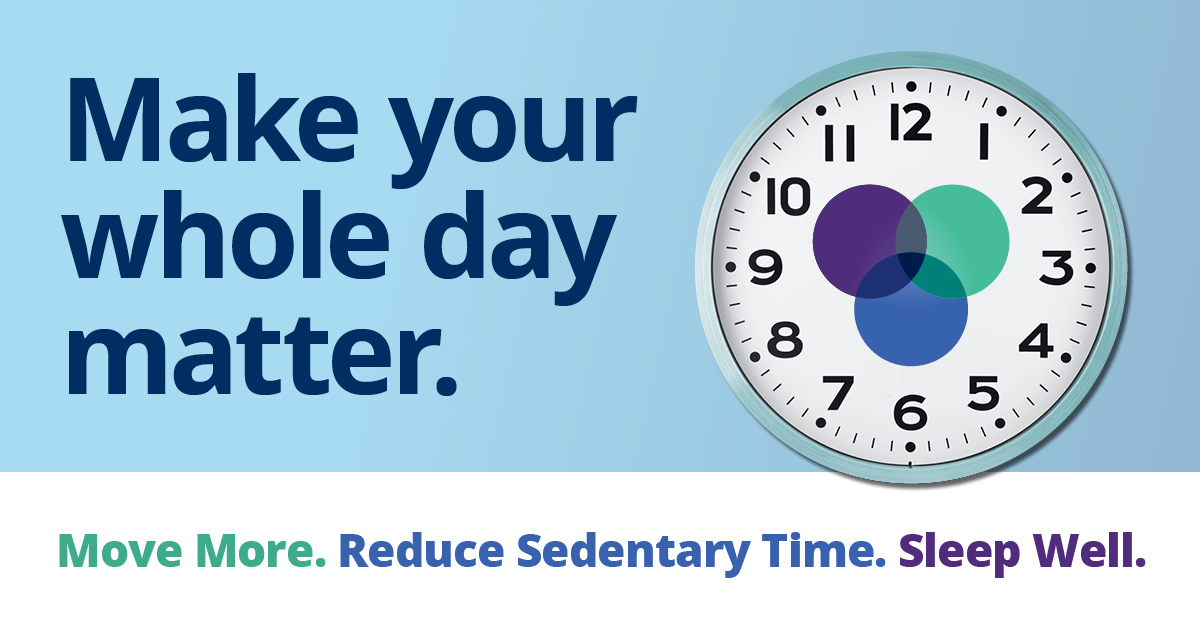Healthy People
Regular physical activity is one of the most important things that can be done for good health. As individuals, there are things that we can all do to keep ourselves healthy by maintaining physical activity levels.
Being active can improve your brain health, strengthen bones and muscles, improve confidence and self-esteem, and improve your ability to complete everyday activities. Regular physical activity has also been linked to improving other important health behaviours, such as healthy eating and reduced alcohol consumption.
Everyone can experience the health benefits of physical activity – no matter one's age, gender, ability, shape or size – and every kind of movement matters!
- Benefits of physical activity
-
Some of the immediate benefits of one single act of physical activity include:
- Improved sleep quality
- Reduced feelings of anxiety and stress
Some of the longer-term benefits of regular physical activity include:
- Improved heart health, and therefore a reduced risk of heart disease, stroke and type 2 diabetes
- Reduced risk of various cancers
- Improved bone health
- Improved brain health, and therefore a reduced risk of depression and developing dementia
- Improved balance and coordination, and therefore a reduced risk of falls and injuries
- Increased levels of dopamine and serotonin (the neurotransmitters that help to improve our mood, energy levels and executive functions)
- Reduced blood pressure
- Canadian Physical Activity and 24-Hour Movement Guidelines
-
The Canadian Society for Exercise Physiology has established best practice guidelines that integrate physical activity, sedentary behaviour, and sleep to offer clear direction on what a healthy 24 hours looks like for Canadians.
How much physical activity?
Always remember that some activity is better than none! You can make the most of your whole day by adding different types of movement at various intensity levels, including physical activity, muscle strengthening activities and standing.
Every kind of movement matters. Finding routine rituals of daily living can help to improve your overall physical and mental health. Movements such as casual neighbourhood walks, gardening, household chores, and taking the stairs instead of the elevator all contribute towards a healthy 24 hours.
Children & Youth 5-17 Years Guidelines
Adults 65 Years and Older Guideline
Some of the immediate benefits of one single act of physical activity include- - Improved sleep quality
- - Reduced feelings of anxiety
- - Increased levels of dopamine and serotonin (the neurotransmitters that help to improve our mood, energy levels and executive functions)
- - Reduced blood pressure
Some of the longer-term benefits of regular physical activity include:- - Improved heart health, and therefore a reduced risk of heart disease, stroke and type 2 diabetes
- - Reduced risk of various cancers
- - Improved bone health
- - Improved brain health, and therefore a reduced risk of depression and developing dementia
- - Improved balance and coordination, and therefore a reduced risk of falls and injuries
The Canadian Society for Exercise Physiology has established best practice guidelines that integrate physical activity, sedentary behaviour, and sleep to offer clear direction on what a healthy 24 hours looks like for Canadians.
How much physical activity?

Always remember that some activity is better than none! You can make the most of your whole day by adding different types of movement at various intensity levels, including physical activity, muscle strengthening activities and standing.
Every kind of movement matters. Finding routine rituals of daily living can help to improve your overall physical and mental health. Movements such as casual neighbourhood walks, gardening, household chores, and taking the stairs instead of the elevator all contribute towards a healthy 24 hours.

It is important to look at our daily activities beyond just movement, and to ensure that sedentary behaviour, such as recreational screen-time, is reduced and that we are getting enough sleep each day.
Getting enough sleep and replacing sedentary behaviour with additional physical activity will greatly benefit overall physical and mental health.
Physical literacy is an important aspect of healthy child development and health promotion across the lifespan. It is “the motivation, confidence, knowledge, and understanding to value and take responsibility for engagement in activities for life” (International Physical Literacy Association). In other words, individuals have the confidence and skills to engage in and integrate physical activity into their lifestyles.Unstructured play happens when children follow their instincts, ideas, and interests without an imposed outcome. It is integral to healthy child development and fosters important life skills (e.g., decision-making skills). Unfortunately access to this type of play is increasingly limited with the popularity and demand of structured household and community extra-curricular activities. - Sedentary behaviours and sleep
-
It is important to look at our daily activities beyond just movement, and to ensure that sedentary behaviour, such as recreational screen-time, is reduced and that we are getting enough sleep each day.
Getting enough sleep and replacing sedentary behaviour with additional physical activity will greatly benefit overall physical and mental health.
- Physical literacy
-
Physical literacy is an important aspect of healthy child development and health promotion across the lifespan. It is “the motivation, confidence, knowledge, and understanding to value and take responsibility for engagement in activities for life” (International Physical Literacy Association). In other words, individuals have the confidence and skills to engage in and integrate physical activity into their lifestyles.
- Unstructured play
-
Unstructured play happens when children follow their instincts, ideas, and interests without an imposed outcome. It is integral to healthy child development and fosters important life skills (e.g., decision-making skills). Unfortunately access to this type of play is increasingly limited with the popularity and demand of structured household and community extra-curricular activities.




